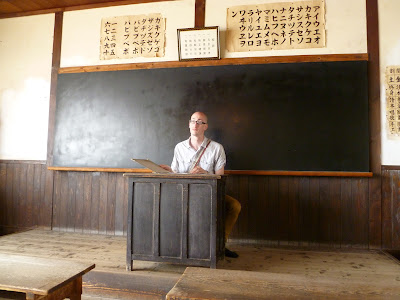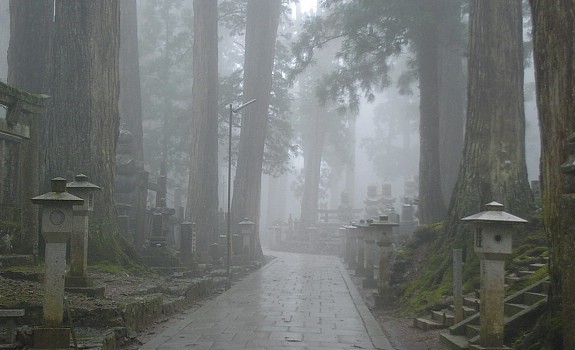Typical. My favorite group of students have spent the post-April
period morphing into a band of noisy spawn hell-demons, much to my regret and
disappointment. And then, when it comes to the week where I tell them I’m
leaving, they revert to being the friendly, warm, earnest young people that I
fell for in the first place. This would all be much easier if they could just
revert to the brat-mode of a few weeks ago.
I think there’s a tendency amongst ALTs to exaggerate their
closeness to students and/or the esteem by which the students hold them. ALTs
do like to boast about:
a)How cool the students think they are.
b) How beautiful the students think they are.
c) The level of trust and intimacy they have with their
students.
d) How much their students fancy them.
It can be a bit unattractive and ties into the supposed “film-star”
status that some ALTs feel on arriving in Japan. I could write a lengthy post
about the self-esteem boost that male ALTs receive on arriving here to be
treated like movie stars by elements of the local female population. It’s a bit
more complex than this, but we can’t pretend it’s not both played up to and a
boost to the ego for some.
Anyway, one aspect of returning to UK life will be the
absence of otherness. We will once again be just one of the crowd. In Japan, we
are really only defined by our otherness. We are not Japanese and that’s what
makes us stand out. But in the UK, it’s our own dress style, personality,
interests etc. that mark us out as individuals. I’ve joked on this blog about
my increasingly dodgy dress sense in Japan. Part of this might be that I have a
30 year-old’s increased focus on practicality. But it’s also in part due to the
fact that no-one from home will ever see me in my waterproof jacket and stupid
hat. So one part of my readjustment on returning to the UK is that I will again
make more effort in what I wear and how I present myself-and this is mainly due
to external pressures rather than any idea of “looking good for myself”.
Since arriving in Japan, I’ve taken part in a monthly
English-language discussion group attended by some English teachers in Okayama.
For the past few months, they’ve been reading the book of The King’s Speech and having
little discussions about it. The book itself is alright-it’s utterly fawning
towards both the king and Logue, but it’s interesting enough if you like that
kind of thing. One problem with the book is that it covers the outbreak of
World War 2. This means the War is a difficult subject to avoid and it has come
up intermittently in our discussions. I’d love to have full and frank
discussions about Japan’s wartime and immediately post-wartime history. It’s
kind of fascinating. But that’s never going to be feasible in this country. Any
time the subject comes up, it feels uncomfortable. People aren’t especially
comfortable talking about their opinions here anyway, so it’s a subject you
have to be careful around.
Also, if you want to know just what a lot of made up
monarchist crap, the film of The King’s Speech was, just listen to a recording
of the actual speech here.
See, it was a rubbish speech. The guy took half an hour to string a sentence
together. That’s who we had as our ceremonial leader at the time of our
greatest ever national crisis. If the head of state had been elected we’d have
chosen someone who could string a sentence together, with better health, a less
foreign background and a sprinkling of charisma. Instead we were left with this
guy who couldn’t even read a speech that was laid out in front of him. And it
may sound as if I’m picking on people with speech impediments here, but it
seems to me that if the main duty of your job is to make speeches, then we
ought to have had someone who could fulfil that function competently. So this
story is actually the tale of a dysfunctional political system and the coaching
of someone who clearly wasn’t up to the job, like a low grade civil servant on
ineffective performance management measures. Sigh.















